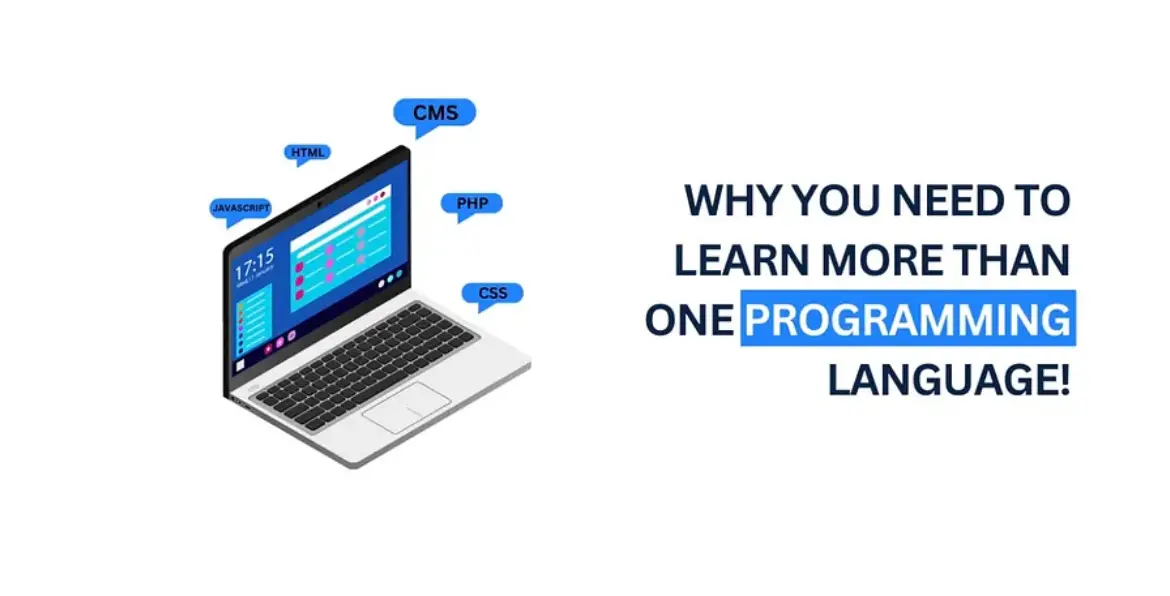Join As Students, Leave As Professionals.
Develearn is the best institute in Mumbai, a perfect place to upgrade your skills and get yourself to the next level. Enroll now, grow with us and get hired.

Why You Need To Learn More Than One Programming Language!
In a fast-evolving digital landscape, the significance of mastering just one programming language is diminishing. Discover why diversifying your coding repertoire by learning multiple programming languages is the key to unleashing a world of possibilities. Our blog explores the myriad benefits of expanding your programming horizons, from enhanced problem-solving skills and increased job prospects to the ability to tackle a wider range of projects.
Data science
Develearn
Programming language
Develearn Technologies
3 minutes
September 1, 2023

Programming languages are the cornerstone of technological innovation in today’s quick-changing and ever-evolving world. Recognizing the considerable advantages of broadening your skill set by studying more than one programming language is crucial for programmers and prospective developers. Whether you are an experienced programmer or a novice, learning more than one language offers you a world of opportunities and advances your career.
1. Adaptability and Versatility
Different activities and domains are better suited to different programming languages than others. By being fluent in many languages, you provide yourself a flexible toolbox that enables you to choose the best language for a specific project. For instance, JavaScript shines in web development whereas Python is fantastic for data analysis and machine learning. You can successfully handle a wider variety of issues if you have the flexibility to adapt to different programming paradigms and problem-solving techniques.
2. Flexibility in Problem-Solving
Different methods to problem-solving and algorithmic thinking are provided by different programming languages. By exposing you to a variety of approaches and tactics, learning many languages improves your capacity to come up with novel solutions. To come up with the most effective and tasteful response to a certain issue, you may make use of the advantages of each language.
3. Employment and Career Advancement
Having proficiency in many programming languages provides you a competitive advantage in the employment market. Employers often look for developers who can contribute to a variety of technologies and projects. Your multilingualism exhibits versatility and a dedication to lifelong learning, which makes you a very valuable member of any team or company.
4. Comprehending Current Codebases
You will probably come across projects and codebases written in different languages as a programmer. You can comprehend and work with existing code more successfully if you know different languages. This ability is particularly important when working with teams from several departments or locations or in huge businesses.
5. Following technological trends
The technological world is continually changing, and new programming languages often appear with the goal of addressing particular problems and enhancing development effectiveness. You position yourself to be at the forefront of technical breakthroughs and maintain relevance in a field that is always evolving by being open to learning new languages.
6. Improved Issue Abstraction
Different degrees of abstraction are encouraged by various programming languages. For instance, high-level languages like Ruby and Python provide more abstracted, user-friendly syntax whereas low-level languages like C and C++ allow fine-grained control over hardware. You can take on tasks with different needs more successfully if you comprehend different levels of abstraction.
7. Establishing a Solid Foundation
Additionally to exposing you to various syntaxes, learning many programming languages can help you better comprehend the underlying ideas behind programming. Most languages include concepts like variables, loops, conditionals, and data structures, although they may be expressed differently in various languages. This knowledge-cross-pollination process improves your programming skills and helps you become a more well-rounded developer.
Conclusion
Finally, accepting the challenge of learning many programming languages is an investment in your career and professional advancement. In a technological environment that is evolving quickly, the advantages of agility, problem-solving adaptability, and better employability are vital. Additionally, the expertise you receive from studying many languages improves your capacity for productive collaboration with other teams and project contributions.
Therefore, whether you are a beginner programmer or an expert developer, set a challenge for yourself to learn new languages and to take use of the variety of chances they provide. Your ability to confidently and proficiently traverse the fascinating world of technology will increase as you continue to enhance your knowledge of programming languages. Coding is fun!




